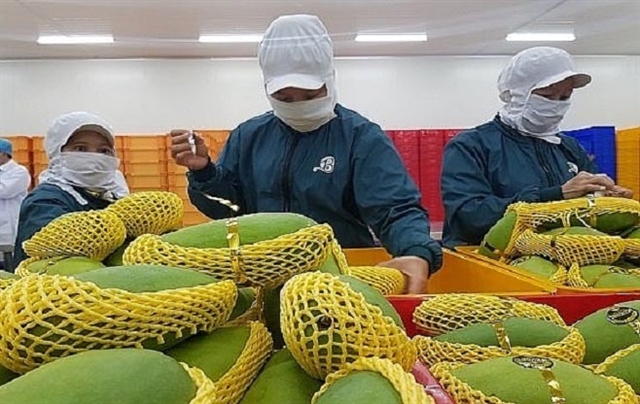Viet Nam wants to expand mango farming and increase exports of the fruit to US$650 million by 2030 amid growing global demand for it.

Viet Nam wants to expand mango farming and increase exports of the fruit to US$650 million by 2030 amid growing global demand for it.
Exports of the fruit have been rising over the years, reaching US$180 million last year.
According to exporters, there is a lot of potential since global exports of mango products were worth $12.3 billion last year.
Nguyen Dinh Tung, chairman of Vina T&T Group, which began exporting the fruit in 2019, said his company has preservation technologies that keep mangoes for around a month, while the free trade agreements Viet Nam has signed with other markets is helping it enter many new markets.
Mango can be grown throughout the year without change in quality, which helps his company easily get export deals.
Dong Thap Province has also identified mango as a key crop in its agricultural reform plan.
Nguyen Quoc Toan, head of the Ministry of Agriculture and Rural Development’s Agro Processing and Market Development Authority, said Vietnamese mango is well received in the US.
But Vietnamese exporters need to invest in preservation technologies so that they can better compete with other mango supplying countries that are closer to the US, he said.
Viet Nam has around 87,000 hectares under mango, with the Mekong Delta accounting for nearly half of it.
It exports the fruit to 40 countries, though China buys up nearly 85 per cent of it.
The country targets having 140,000 hectares under mango by 2030, an output of 1.5 million tonnes a year and exports of $650 million.
It also wants more than 70 per cent of mango processing and exporting facilities to be of high quality and use modern technologies.
The Government wants the Mekong Delta provinces to register mango farming zones and issue codes for them, push for safe farming practices and carry out frequent inspections of processing and packing facilities.
Deputy Minister of Agriculture and Rural Development Tran Thanh Nam said co-operatives are important in connecting farmers with exporters to form value chains, and helping members form large farming zones. — VNS





